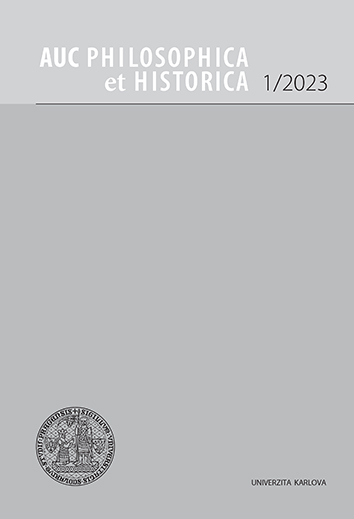AUC Philosophica et Historica (Acta Universitatis Carolinae Philosophica et Historica) is a multidisciplinary academic journal focused on the humanities with more than 50 years of tradition.
The journal is indexed in CEEOL, DOAJ, and EBSCO.
AUC PHILOSOPHICA ET HISTORICA, Vol 2009 No 1 (2009), 9–22
Pět tezí současné kulturní ekologie
Miloslav Lapka, Zdenka Sokolíčková, Jan Vávra
DOI: https://doi.org/10.14712/24647055.2018.9
published online: 12. 01. 2018
abstract
Today, the character and role of cultural ecology as a scientific discipline reflecting the relationship between human society and natural environment is questioned under the light of contemporary global environmental and societal issues. The introductory article of the initiators and organizers of the conference entitled Our Common Present completes three aims. First of all, it comments on the original focus of the discipline and the shift that it underwent after being established in the 1950s by Julian Steward. The fact that environmental circumstances influence institutions and societal order is still valid, yet by no means is the importance of the impact of human society onto natural environment less significant. In the second part, the article summarizes historical stages and diverging concepts that marked the evolution of the discipline. The difference between cultural and social ecology, and the living heritage of Murray Bookchin, Chicago school and environmental sociology are discussed. The overview concludes with an informative section about Czech academic institutions active in the field of cultural ecology. Reflection on the responsibility of cultural ecologists, as revealed by Bohuslav Blažek, is underlined. The link between the academic sphere and urgent issues of nowadays, or more precisely, the need to establish it, triggers the formulation of five constitutive principles of today’s cultural ecology. These include: 1) focus on present times instead of escapes into the past or the future, 2) transdisciplinarity, 3) reflection on the society – environment relationship through culture, 4) dealing with concrete global problems, and 5) dialogue between man (society) and environment (nature). Complex societal reality of the 21st century is calling for approaches that avoid plain reductionism. The task that cultural ecology is facing at the moment is to clarify what issues it can address in a way inaccessible to other, highly specialized scientific disciplines. The ability to prove its potential for a better understanding of environmental and societal processes that determine our times will be crucial for its future course.
